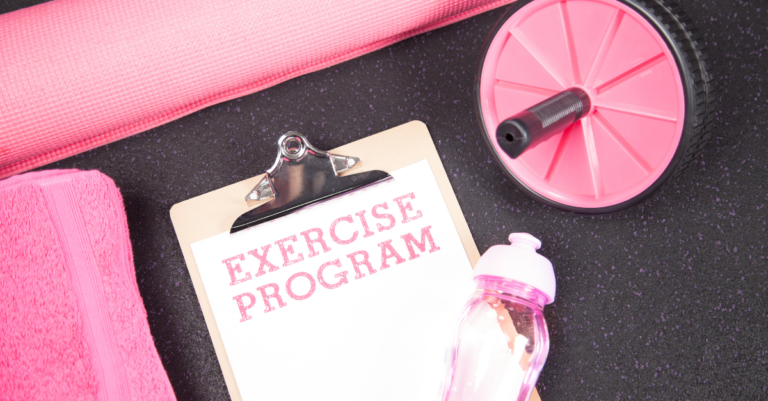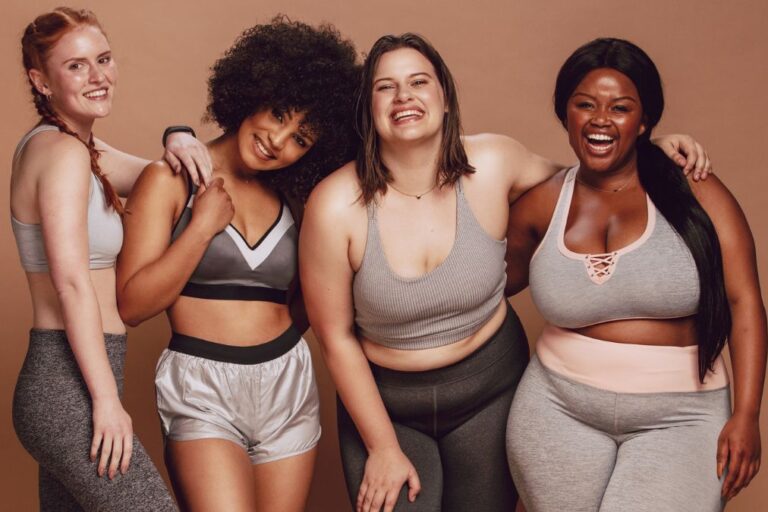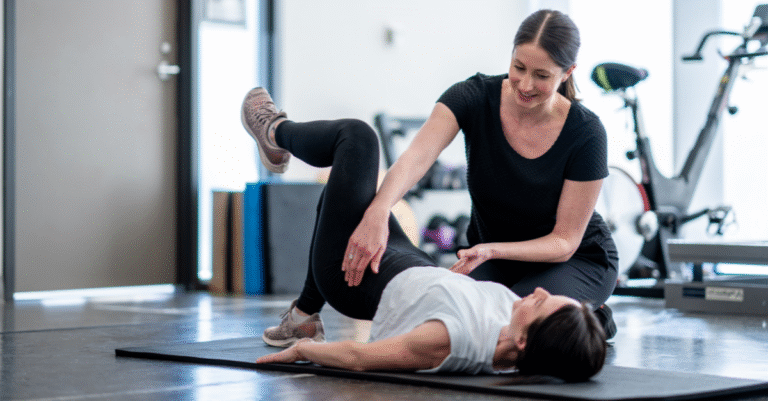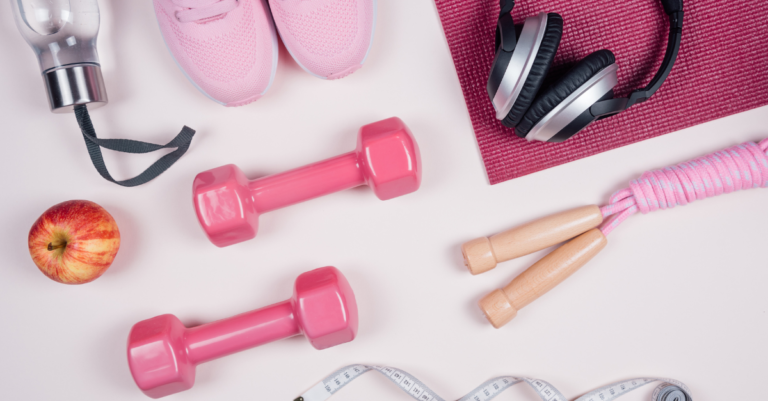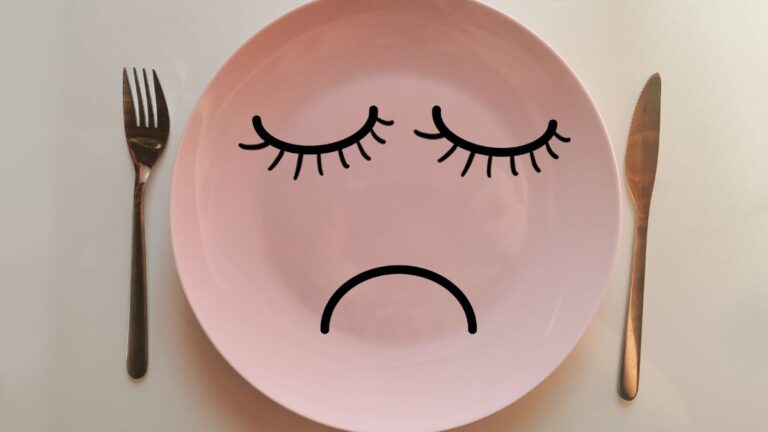The Real Experience of Living with a Higher BMI

It’s easy to make assumptions when you don’t understand where someone is coming from.
For those who have never lived it, carrying a higher body weight can seem like a choice:
“Eat better.”
“Move more.”
“Just try harder.”
But the truth is, they know what to do; they’re just stuck on how, and that stuck place feels paralyzing.
Living in a bigger body is almost never about laziness or lack of willpower.
It’s about quiet, exhausting daily battles no one sees.
And even when change is desperately wanted… it feels impossibly far away.
This is what it’s like inside her head and why empathy matters.
Without it, real change never starts, because they are too afraid to ask for a hand.
Before Food Even Comes into the Picture
She wakes up tired.
Maybe from poor sleep. Maybe from undiagnosed or unmanaged sleep apnea.
Her joints hurt. Inflammation is always there in the background. Just getting up already feels like way too much work.
She feels heavy. Not just in her body, but in her mind too.
The brain fog starts before she even makes it to the kitchen.
There’s a sense of dread about the day ahead.
Not just about all she has to get done, but about being seen, judged, or not being able to keep up.
She avoids mirrors as much as she can.
She doesn’t buy new clothes anymore because what’s the point? She wears what still fits, until it doesn’t.
She never daydreams about goals anymore.
It feels much safer not to hope for things she thinks will only disappoint her later.
When Food Enters the Picture
Before Eating:
She thinks about food a lot because it’s one of the few consistent sources of pleasure she still gets. But sometimes, it’s not even about joy or fulfillment anymore. It’s just reliable and somewhat predictable.
It’s the thing that doesn’t argue with her, doesn’t make her feel stupid, and doesn’t ask for anything in return. It’s always there for her. She can count on it.
When she picks up the phone to order in or grab something from the pantry, she’s not thinking about fuel, nutrition, or her health.
She’s thinking:
- “I need to break the tension.”
- “I deserve this.”
- “I’ve already ruined the day, so who cares?”
- “I’m too tired to cook.”
- “This is the only thing I’m looking forward to today.”
While Eating:
If it’s takeout, it might feel exciting… for 90 seconds, but then the autopilot takes over.
She eats past fullness. Not because she’s actually hungry, but because stopping never even crossed her mind. Her body’s hunger and fullness cues just don’t work like they should anymore.
Sometimes she eats really fast to block out thoughts.
Sometimes slowly, to stretch the comfort.
Sometimes she barely notices she’s eating.
Shame doesn’t usually show up until after the meal, but it’s not strong enough to stop her from giving in.
After Eating:
Once the meal is over, she feels it.
- Guilt and Upset
- Nausea and Heartburn
- Bloating and Sluggishness
- Self-loathing and Helplessness
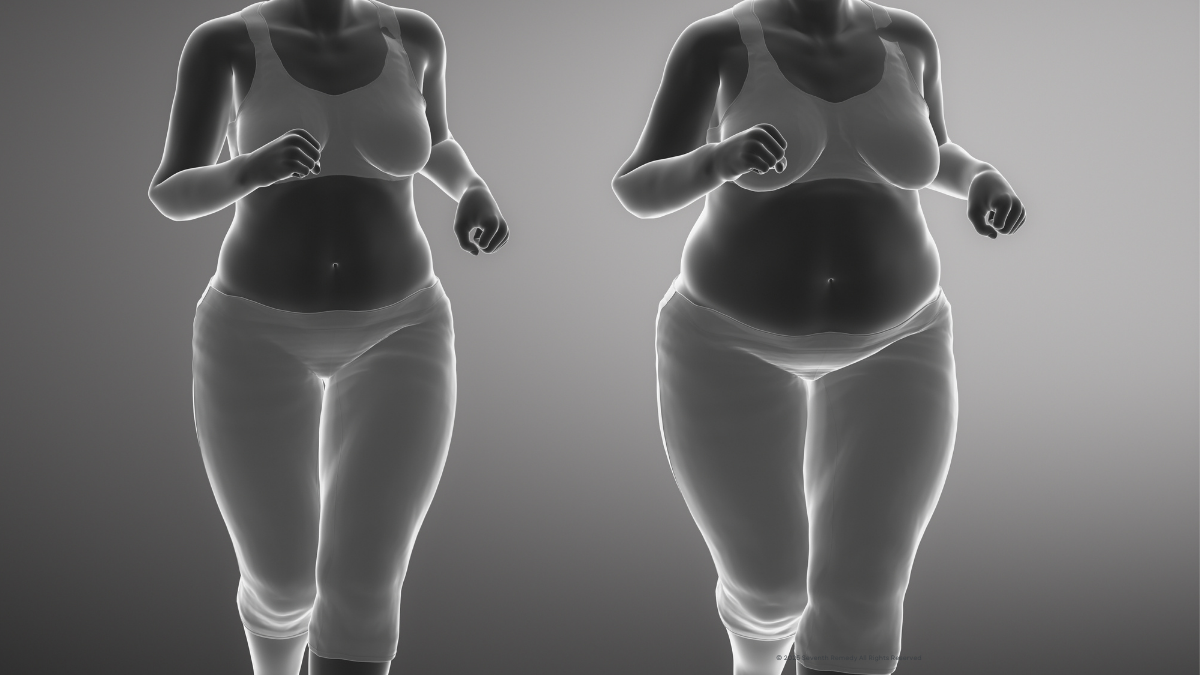
Why She Doesn’t Stop
She knows this hurts her. She knows it might shorten her life.
She even sees how much it hurts her loved ones.
They stopped asking her to do fun things with them, not because they didn’t care, but because they assumed it would be too hard or she’d say no.
She misses out on parties, festivals, weddings, and simple get-togethers. Not just because she’s less mobile, but because saying yes feels like too much for her.
She sees all of this but doesn’t believe she can change. She thinks it’s completely out of her hands.
And when the brain is convinced that failure is guaranteed, it stops trying, and settling becomes a safer choice.
What Gets in the Way?
Comfort beats health (at least in the moment)
Pain relief now feels more urgent than change later.
She doesn’t know what “feeling better” actually feels like.
If she’s never felt strong or energized — or enjoyed good sleep, easy breathing, or freedom from back and knee pain — how would she even know to miss it?
Her struggles feel like part of her identity.
- “This is just me.”
- “Some of us aren’t meant to be thin.”
- “I will fail.”
- “I’m too far gone.”
- “My body hold on to weight differently.”
- “It’s genetic.”
Her brain wants the dopamine from processed food.
Even when she’s full or sick, it tells her, ” Just one more bite.”
Movement feels like punishment instead of freedom.
- The gym feels intimidating. (She doesn’t know this can be true for anyone in any body.)
- Walking sounds exhausting. (She thinks it has to mean long walks, not knowing that just moving more throughout the day can make a huge difference.)
- Floor exercises are out of the question. (She isn’t sure she can get down there, let alone get back up.)
No one has shown her that movement can actually feel good and offer relief.
She’s tired of being talked at.
Doctors, family, and strangers tell her things she’s “already heard and tried.”
She tunes them out, even if something actually might help.
She never unlearned all the bad diet culture advice she grew up with.
She still thinks she has to cut out everything she loves and doesn’t realize balanced nutrition can actually mean feeling full and satisfied.
In Public, It’s Even Harder
She’s hyper-aware and on high alert.
- Every chair has to be scanned. Will it hold me?
- Is everyone watching what I eat? How I eat?
- Will standing up or walking to the restroom look awkward?
What About the Ones Who’ve Never Even Tried?
For many women:
- They’ve never seen anyone like them succeed.
- Emotional eating and inactivity were normal growing up so they model that behavior as adults.
- They never learned about true balanced nutrition (they think it means no desserts ever or being hungry all the time).
- They’ve been rewarded for overeating (“good girl, finish your plate”) and punished when they tried to change (“you think you’re better than us now?”).
- They don’t trust themselves to follow through.
- They assume trying will only lead to failure.
- They assume every attempt will be miserable because that’s all they’ve known.
The Hard Truth
For women living in larger bodies, survival mode feels comfortable and familiar, sort of like a best friend or a family member.
Instant comfort and coping win over long-term goals that feel impossible.
It’s not that they don’t want to feel better. It’s that they don’t believe they can, at least not in a way that will last.
So, they give up and stop trying. Or they blame the things they think they can’t control.
Until someone comes along who actually sees them, doesn’t judge them, and instead teaches them that they don’t have to do it all at once or alone. Shows them proof that they have way more control and power over their situation than they think.
For those of us who’ve never had to face life in a higher-weight body, this is what it can be like.
If we want to help, we first need to understand each other.
Photo Credits
Woman fitness gear by Olga Niekrasova from The Olga Niekrasova Collection
Concept of Weight Gain by janulla from Getty Images
This article is for educational purposes and is not intended to replace medical consultation. Always consult a healthcare professional before making health-related decisions.
Editorial Note: Portions of this article were supported by editorial tools, including AI. All content is researched, written, and reviewed by Claudia Dzina, CPT, before publication.
Most exercise programs focus on what to do.
This work focuses on helping your body feel steady and capable again as it changes.
Training is guided, intentional, and paced to support strength, balance, and confidence in real life, not just workouts.
If your body feels different and you’re not sure where to start, this is a supportive place to begin.


